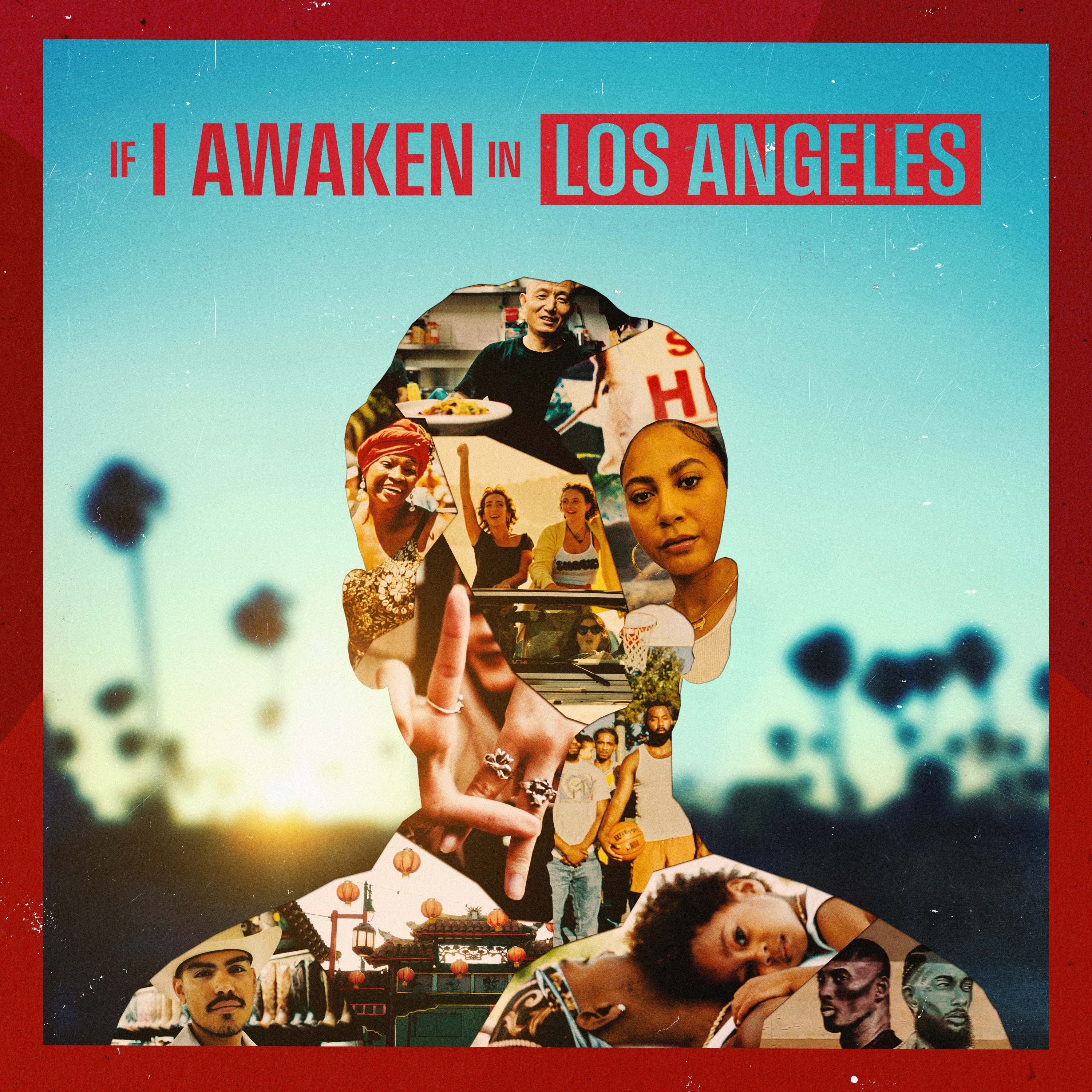A Citywide Poetry Contest for LA Students & Teachers
Presented by Get Lit – Words Ignite

About the Album
The album tells the story of Los Angeles communities like Altadena, Leimert Park, South LA, Boyle Heights, Koreatown, Malibu, and more. Featuring poetry from renowned artists, including Luis Rodriguez, Dante Basco, Joy Harjo, and more and featuring music from Grammy Award-winning Derrick Hodge.
Now we ask: Tell us about YOUR LA!
About the Contest
This contest opens September 29. Winners announced on December 1. The contest is open to 6th-12th grades and teachers. Winners are selected through both People’s Choice voting and an elite panel of judges.
10 CASH PRIZES TOTALING $11,000 AWARDED TO TEACHERS WHO HAVE THE MOST AMOUNT OF STUDENTS WITH CLAIMED POEMS and WRITTEN RESPONSES.
(Note: Teachers need a minimum of 50 students to be eligible.)
Contest opens: September 29
Winners announced: December 1, 2025
how to enter
Step 1
- Teachers play the album in their classrooms (a short, optional lesson plan accompanies the album) or ask their students to listen at home/after school.
- Students log onto Uni(verse) claim a track/poem of their choice that they will write a response poem to.
Step 2
- To enter the If I Awaken contest, students and teachers upload the text of their response poem and a video of themselves performing their poem onto Uni(verse), Get Lit’s poetry platform. (This will go to a competition page where entered student and teacher poems can be viewed separately. Only the 20 Winning poems will be shared publicly.)
Step 3
- Students vote for their favorite response poems. Comment on each poem, including a sentence or two about why you voted for it.
- Teachers can also leave comments for each other’s poems.
CONTEST PRIZES
Students- 10 People’s Choice winners: $1,000 each | 10 Judges’ winners: $1,000 each ($20,000 total)
- 10 Teachers’ poems chosen by judges: $1,000 each ($10,000 total)
All winning poems will be published in the final anthology, Awakening Los Angeles.
JOIN TODAY and be part of this citywide celebration of Los Angeles voices!
Get Involved
Whether you're an educator looking to inspire your classroom or a student ready to speak your truth, this is your chance to celebrate your community and share your story.
Your block. Your story. Your voice.
Questions?
Reach out to:
Diane Luby Lane, Executive Director — diane@getlit.org
Brian Sonia-Wallace, Head of Outreach — brian@getlit.org
Morning Keynote:
WHAT IT IS & WILL BE
As poets, we are often tasked with paying deep attention to the world and describing what we witness. But what do we do when witnessing the world starts to take a toll on us? What happens when we shift our attention to worlds that don’t (yet) exist? Franny discusses their journey into speculative poetry and how bringing elements of sci-fi and magical realism helped them start to explore what writer Toni Cade Bambara meant when she said: “The role of the artist is to make the revolution irresistible.”
Afternoon Workshop: WRITING SPECULATIVE POETRY
In this workshop, we will look at several examples of poems that imagine, propose, speculate, or wish for alternate worlds. We will experiment with the speculative mode, rewrite narratives, and try out some world-building in our poems. Come ready to play!
Lunchtime Keynote: TOWARD A POETICS OF INVESTIGATION AND DISCOVERY
Poetry—the poet Carl Phillips writes in his essay, Muscularity and Eros: On Syntax—is patterned language. Patterned language reveals patterns of thought, feeling, and behavior in an individual life. Can writing a poem help a poet more honestly understand their life? Can revising a poem help a poet change their life?
Using “Those Winter Sundays” by Robert Hayden and “How It Felt” by Sharon Olds, this talk will think through the poetics, and politics, of writing toward investigation and discovery. It will consider how a poem can produce new knowledge about human experience, and how a poem committed to radical freedom should, perhaps, begin with a question about human experience—a quest into unknown territory and the Territory of the Unknown.
Afternoon Workshop: TELL IT LIKE IT IS
While what we have heard is true—that we should "show" and "not tell"—sometimes we have to tell it like it is. In this generative writing workshop, we will read "Autobiography of Eve" by Ansel Elkins and define the "it" as the discovery the poet makes about the emotional or psychological landscape of their lived experience. We will look at how the act of discovery rather than the act of announcement must always be a priority in poetry, and we will see how fundamental elements of poetry—such as syntax, received form, and the image—can be used to show AND tell the discovery "like it is." Finally, we will write new poems that demonstrate what we will have learned together and hold a Q&A that invites any questions poets might have about their poems, poetry, and poetry writing.
Afternoon Workshop: THE POETICS OF SURPRISE
Truth and logic are important parts of narrative, but they're not the only way to move a poem forward. What happens when we let sound lead the way? What revelations might we find by allowing our senses to lead us through a poem? In this workshop we will practice writing in ways that delight and surprise us while writing--and hopefully, surprise and delight the reader, too.

